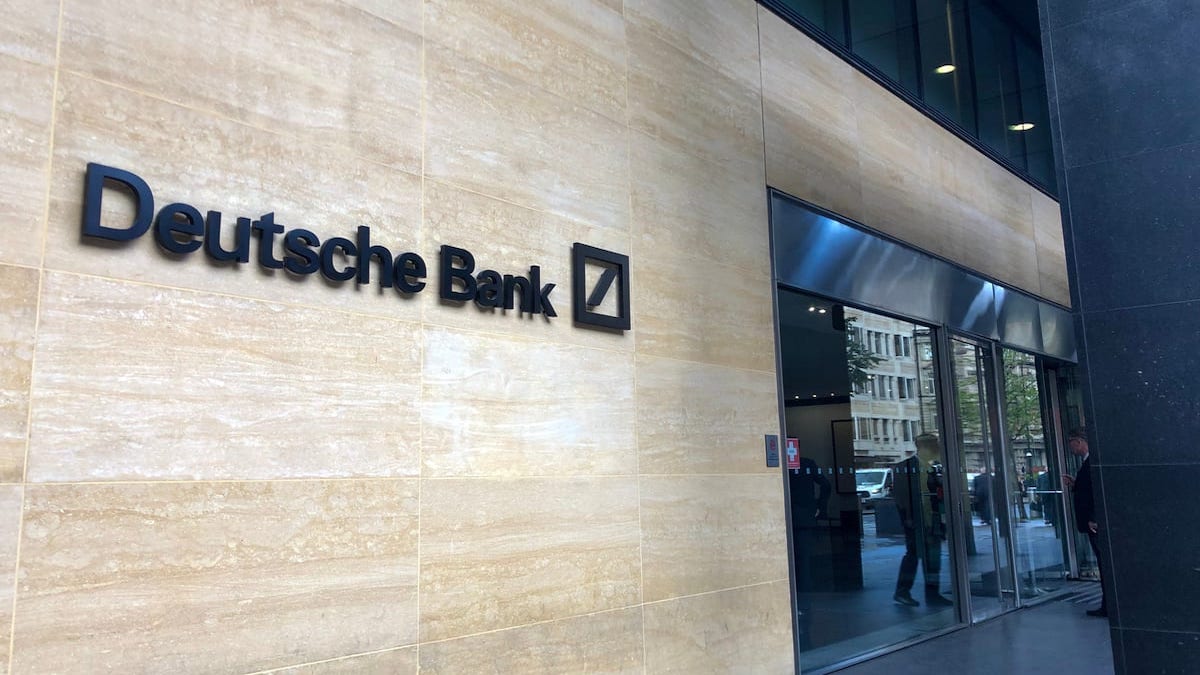Deutsche Bank has forged a strategic partnership with the Swiss cryptocurrency firm Taurus to offer custody services for institutional clients’ digital assets and tokenized financial instruments. This groundbreaking collaboration marks a significant step for Deutsche Bank, allowing it to securely hold a limited selection of cryptocurrencies and tokenized versions of traditional financial assets on behalf of its clients. While the partnership solidifies the bank’s foothold in the digital asset space, it has clarified that cryptocurrency trading is not an immediate priority.
In a statement released by Taurus, this alliance represents a pivotal moment for both organizations. Deutsche Bank, a prominent player in the global financial industry, has traditionally steered clear of direct involvement with cryptocurrencies. However, this collaboration with Taurus signals a willingness to explore the growing interest in digital assets among institutional clients.
The decision to provide custody services rather than trading services aligns with Deutsche Bank’s measured approach to the crypto market. The bank had previously indicated its intention to enter the cryptocurrency trading arena in a 2020 World Economic Forum paper, but it now appears that their focus has shifted toward servicing clients in the broader digital asset ecosystem.
Deutsche Bank’s cautious stance is informed by the tumultuous recent history of the cryptocurrency market. Over the past year, several prominent cryptocurrency firms experienced catastrophic collapses, resulting in substantial losses for investors. These events prompted regulatory scrutiny and calls for increased oversight from lawmakers across the globe. Amid these challenges, traditional financial institutions are cautiously exploring the potential of blockchain technology, which underpins cryptocurrencies, for enhancing the trading and settlement of conventional financial assets.
Several other banks, including Standard Chartered, BNY Mellon, and Societe Generale, have already ventured into the realm of cryptocurrency custody services. These offerings cater to institutional clients seeking a secure and regulated means of holding digital assets as part of their investment portfolios.
Paul Maley, Deutsche Bank’s Global Head of Securities Services, emphasized the significance of digital assets in today’s financial landscape. He acknowledged that the digital asset space is expected to encompass trillions of dollars in assets, making it a high-priority consideration for both investors and corporations. While the overall cryptocurrency market has seen fluctuations, it remains substantial, with a total market capitalization of approximately $1.1 trillion, albeit down from its peak of over $3 trillion in November 2021, according to CoinGecko data.
Maley clarified that Deutsche Bank’s focus extends beyond cryptocurrencies alone. The bank is committed to supporting its clients within the broader digital asset ecosystem, which includes tokenized versions of traditional financial assets and the underlying blockchain technology.
As the cryptocurrency market continues to evolve, regulators in the United States have issued warnings to banks about potential liquidity risks associated with clients engaged in cryptocurrency-related activities. Maley emphasized that Deutsche Bank is proceeding cautiously, adhering to the regulatory framework governing this asset class. The bank’s product design and custody services are specifically structured to mitigate any risk that could compromise its core banking activities.
In summary, Deutsche Bank’s partnership with Taurus marks a significant milestone in its journey into the digital asset space. While the bank is not diving into cryptocurrency trading, its commitment to offering custody services underscores the growing recognition of digital assets as a valuable component of modern finance. As the industry matures, Deutsche Bank aims to navigate this evolving landscape cautiously and in compliance with regulatory requirements, ensuring the safety and security of its clients’ digital assets while maintaining the integrity of its core banking operations.






















